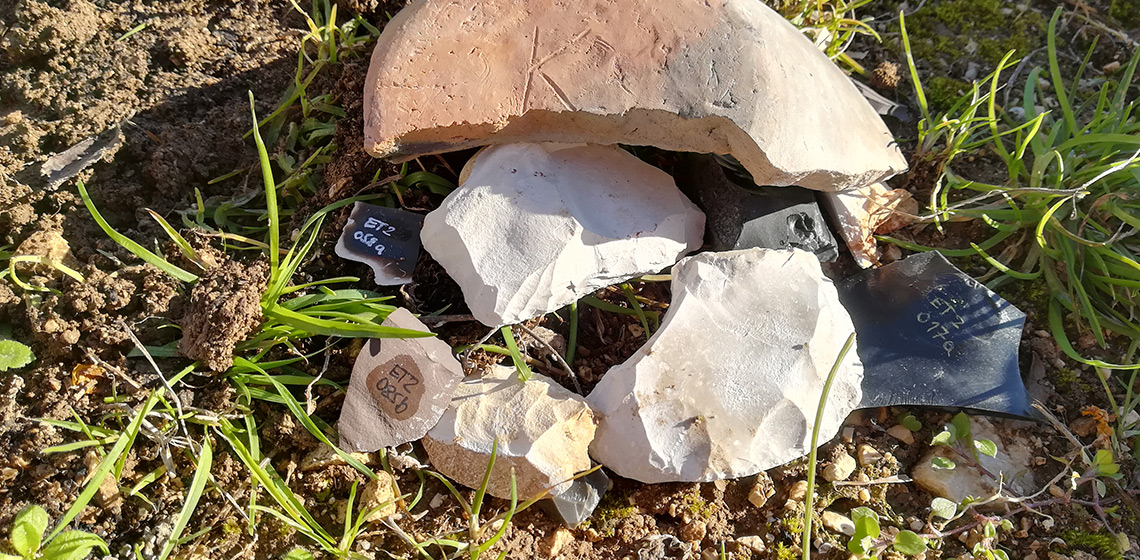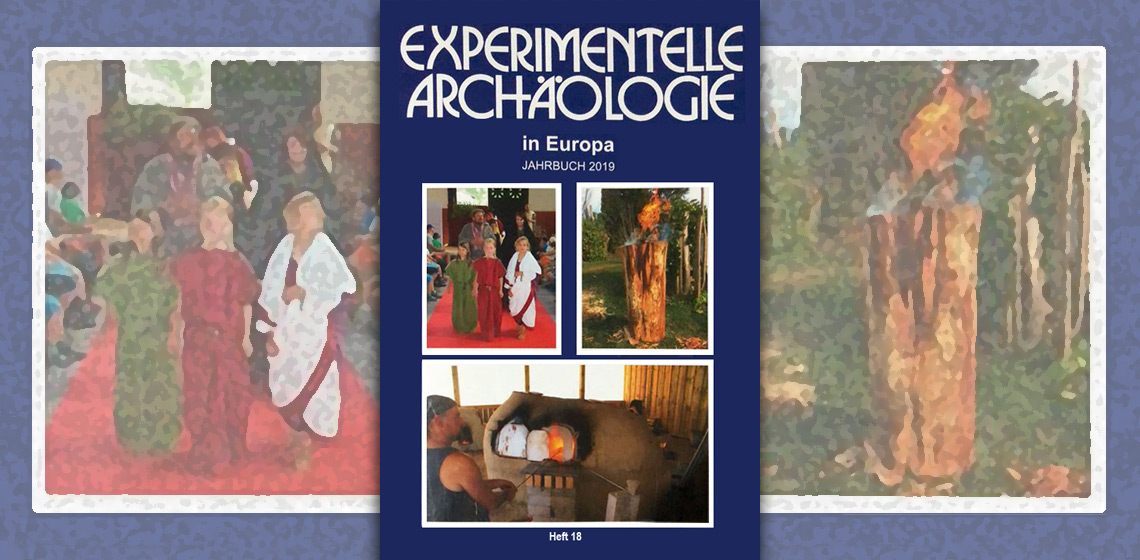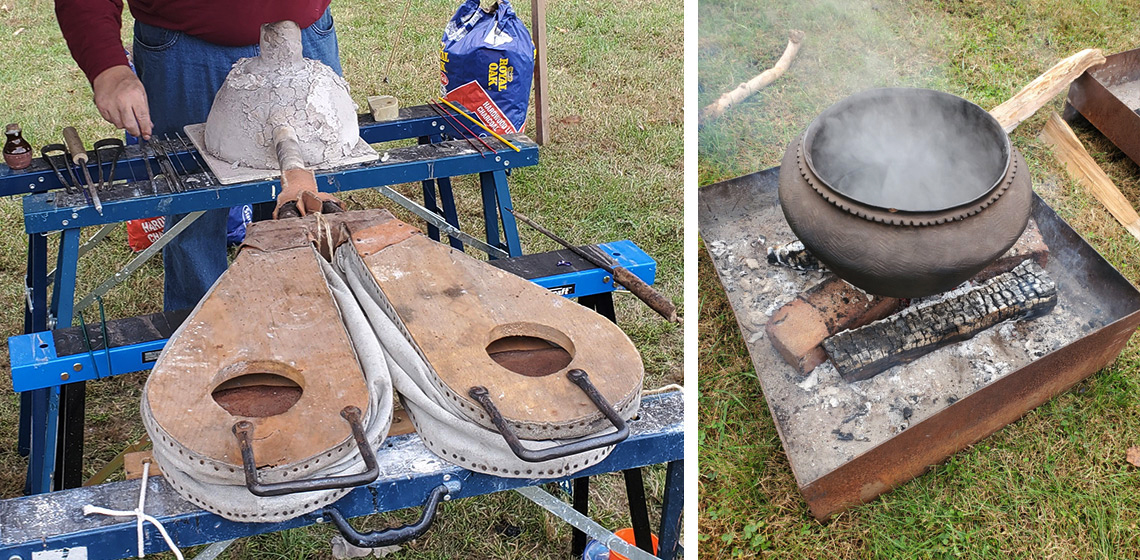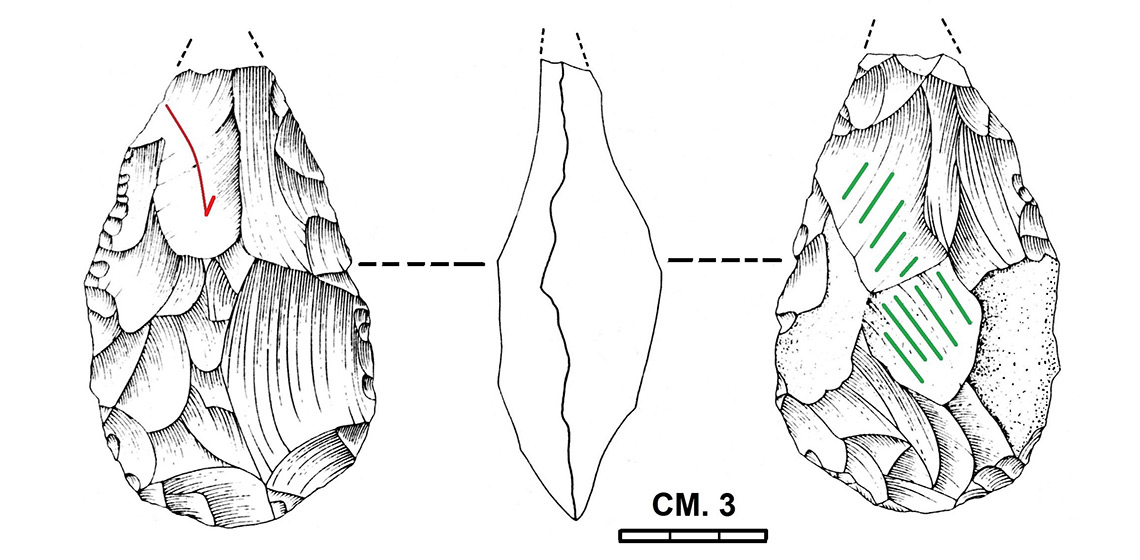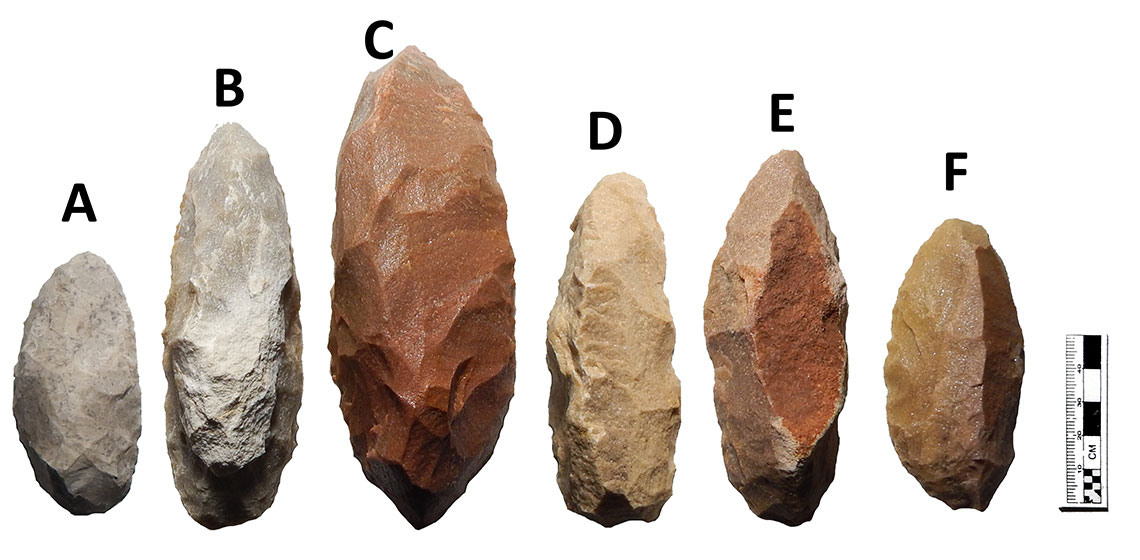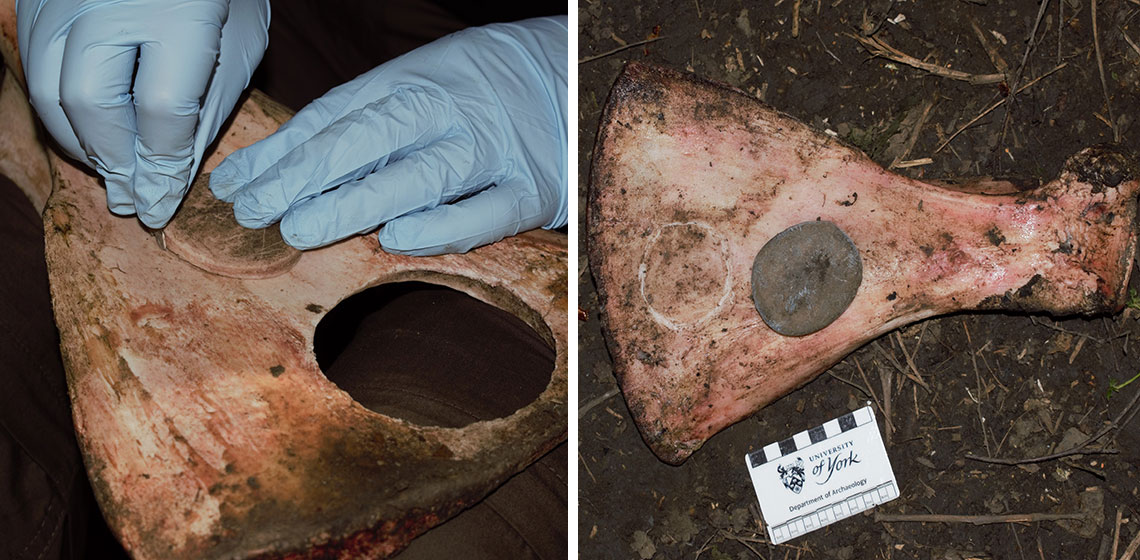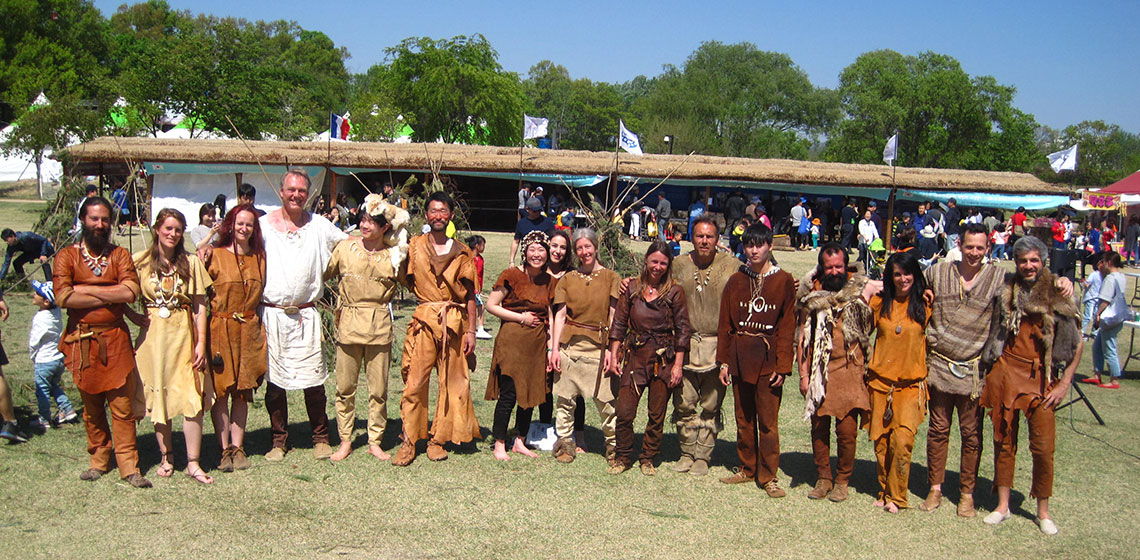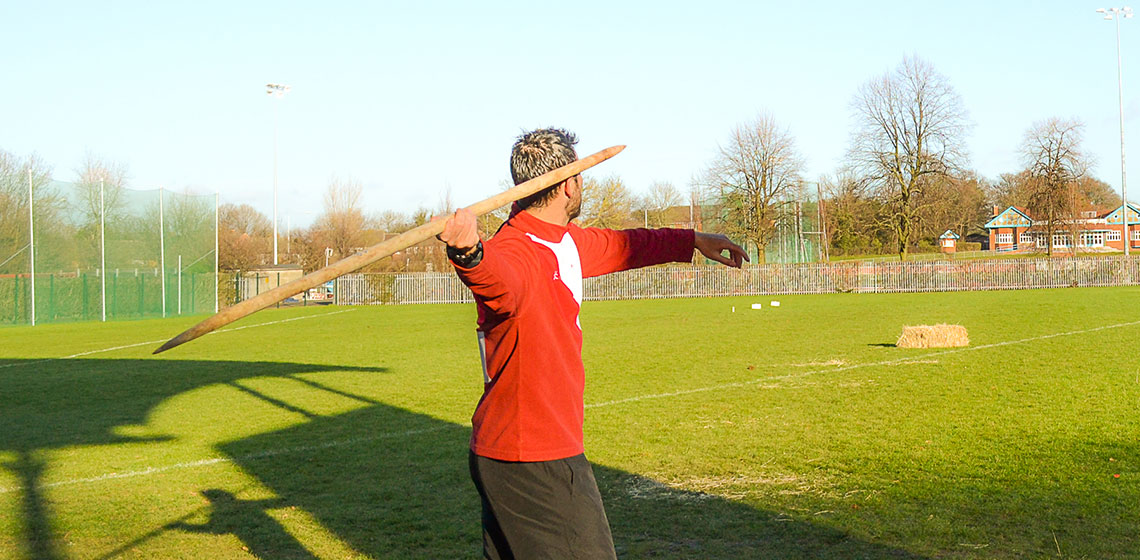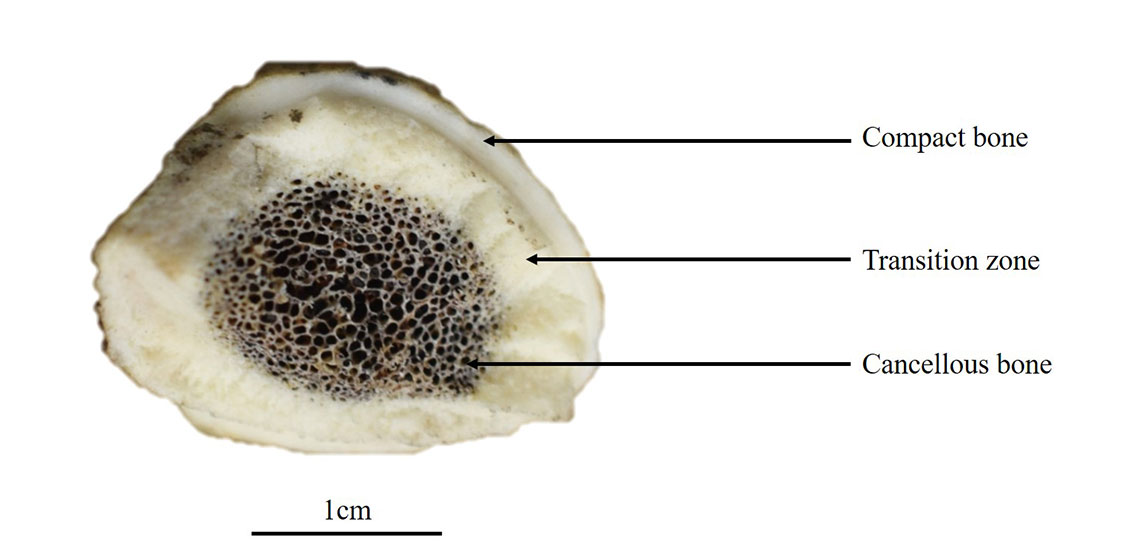Palaeolithic
Trampling Experiments – A Contribution to the Pseudo-Retouch Issue
Publication Date
11th EAC Trento 2019
***Apart from human-made retouch, stone tools can also exhibit traces of damage caused by several post depositional processes, one of which is trampling. Edge damage provoked by trampling, be it of animal or human origin, is sometimes interpreted as human-made retouch ...
***Apart from human-made retouch, stone tools can also exhibit traces of damage caused by several post depositional processes, one of which is trampling. Edge damage provoked by trampling, be it of animal or human origin, is sometimes interpreted as human-made retouch ...
Barely Scratching the Surface: An Experimental Approach to Engraved Magdalenian Plaquettes
Publication Date
This paper investigates the creation, utilisation, and destruction of engraved Magdalenian plaquettes through the application of actualistic experimental replication. Archaeological evidence suggests that there is a relationship between plaquettes and hearth structures, as well as engraved depictions and the destruction of the plaquettes through heating. However, this relationship between fire and plaquettes...
Book Review: Experimentelle Archäologie in Europa, Jahrbuch 2019
Publication Date
Annual Proceedings of the EXAR Tagung
***It is the 18th issue of the periodical and includes 27 essays on experimental archaeology as well as an annual report (Jahresbericht, p. 321), an obituary for Sylvia Crumbach (p.325) and instructions for authors (Autorenrichtlinien, p. 326) of Experimentelle Archäologie in Europa on 328 pages...
***It is the 18th issue of the periodical and includes 27 essays on experimental archaeology as well as an annual report (Jahresbericht, p. 321), an obituary for Sylvia Crumbach (p.325) and instructions for authors (Autorenrichtlinien, p. 326) of Experimentelle Archäologie in Europa on 328 pages...
Conference Review: Reconstructive & Experimental Archaeology Conference REARC 2019
Publication Date
REARC Conferences
***The 9th annual Reconstructive and Experimental Archaeology Conference, hosted by the Center for Historic Preservation at the University of Mary Washington and George Washington’s Ferry Farm in Fredericksburg, Virginia, took place between October 25th and 26th...
***The 9th annual Reconstructive and Experimental Archaeology Conference, hosted by the Center for Historic Preservation at the University of Mary Washington and George Washington’s Ferry Farm in Fredericksburg, Virginia, took place between October 25th and 26th...
Basalt Handaxes: Preliminarily Testing the Lithic Translation Strategy Hypothesis and Comparisons with the Fontana Ranuccio Site Bifacial Tools
Publication Date
11th EAC Trento 2019
***The oldest bifacial “handaxes” known so far belong to the “Kokiselei 4” site, dated to 1.76 Ma (West Turkana, Kenya; Texier, 2018). They have been manufactured by direct lithic percussion on magmatic effusive stone materials. Considering that the evolution of “fully operational intelligence” (Wynn, 1979) has been associated with the so-called...
***The oldest bifacial “handaxes” known so far belong to the “Kokiselei 4” site, dated to 1.76 Ma (West Turkana, Kenya; Texier, 2018). They have been manufactured by direct lithic percussion on magmatic effusive stone materials. Considering that the evolution of “fully operational intelligence” (Wynn, 1979) has been associated with the so-called...
Bringing Experimental Lithic Technology to Paleoamerican Brazilian Archaeology: Replication Studies on the Rioclarense and Garivaldinense Industries
Publication Date
Experimental archaeology, especially experimental lithic technology, has not yet been established as a line of research in Brazil (or most of South America). This article presents the first systematic experimental research aiming the replication of Paleoamerican (or Paleoindian) lithic industries. Experimental replication of the stemmed points from Rioclarense and Garivaldinense industries were carried out in order to better understand their original technology.
Spinning in Circles: the Production and Function of Upper Palaeolithic Rondelles
Publication Date
Rondelles are thin, circular disc cut-outs typically made from the blade of the scapula of medium sized ungulates, such as horse or cervid. These are primarily associated with the Late Upper Palaeolithic Magdalenian and focused around northwest Europe. Rondelles are frequently...
Event Review: Yeoncheon Palaeolithic Festival: from Hand Axe to Street Dance
Publication Date
In 1978 a US Army soldier stationed in the North of South Korea discovered several hand axes near Jeongok in the Yeoncheon Province. This was the start of many years of archaeological investigations and eventually the building of the very futuristic Jeongok Prehistory Museum and the organisation of the annual Yeoncheon Paleolithic Festival...
Skills Shortage: A Critical Evaluation of the Use of Human Participants in Early Spear Experiments
Publication Date
Hand-delivered spears are the earliest clear hunting technology in the archaeological record, with origins from 400,000 years ago, before the evolution of our own species. Experimental archaeological approaches to early weaponry continue to grow, and both controlled and naturalistic experiments are making significant contributions to interpreting such technologies...
Have you got the tine? Prehistoric Methods in Antler Working
Publication Date
Antler working was prevalent throughout prehistory, with a breadth of intricately detailed and technologically complex antler artefacts observed within the archaeological record. In particular, during the Palaeolithic, Mesolithic, and Neolithic, antler working with flint tools would have been a time-consuming process. While the chaîne opératoire of producing certain antler artefacts has previously been explored...

